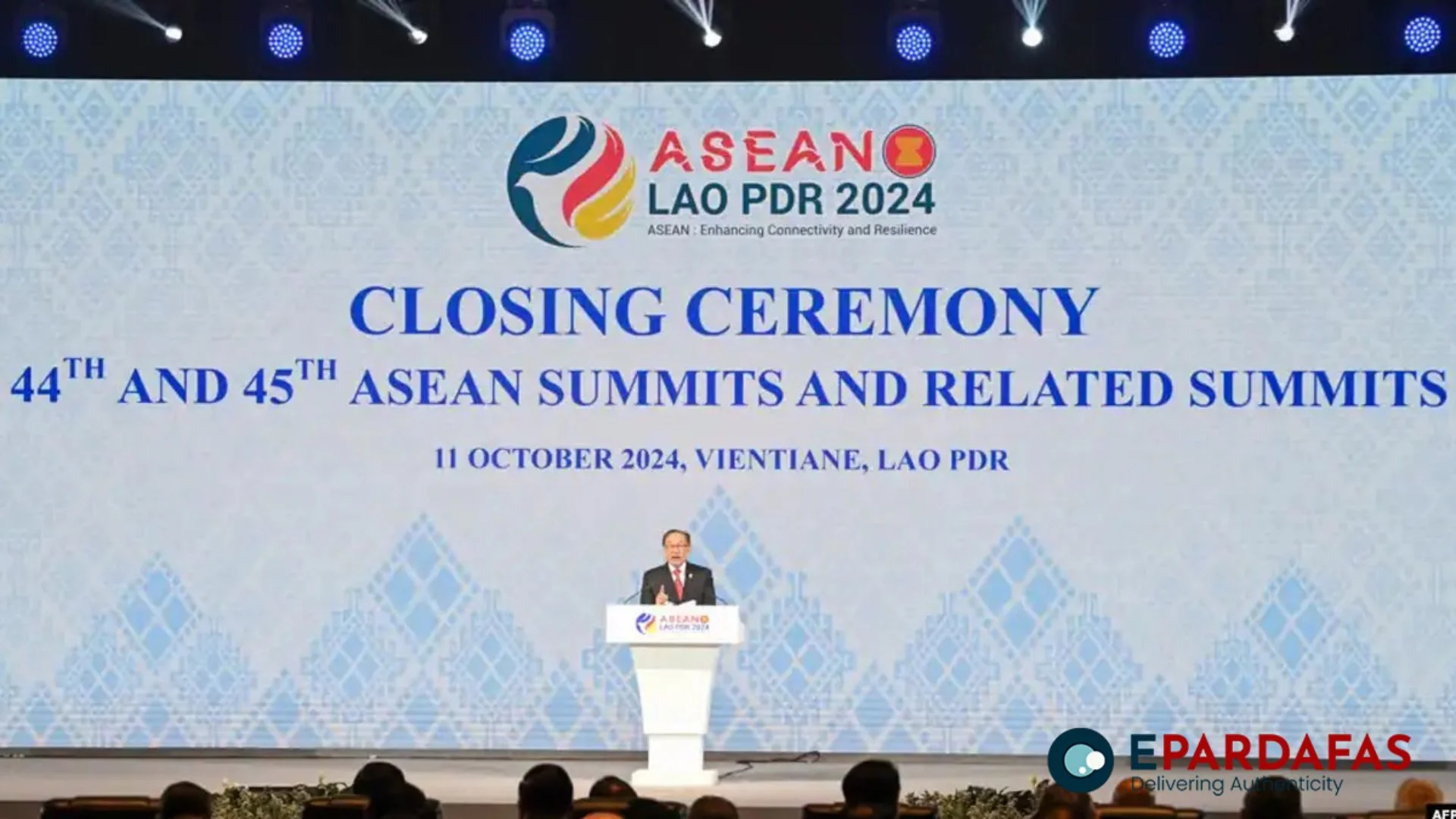Russia and China blocked a proposed consensus statement for the East Asia Summit (EAS), primarily due to disagreements over language concerning the contested South China Sea, a US official revealed on Saturday. The draft statement, crafted by the 10-nation Association of Southeast Asian Nations (ASEAN), was presented during the 18-nation EAS meeting in Laos on Thursday.
ASEAN offered the draft on a “take-it-or-leave-it” basis, according to the US official, speaking anonymously. While the United States, Japan, Australia, South Korea, and India supported the proposal, Russia and China refused to proceed with it.
Russian Foreign Minister Sergei Lavrov explained at a news conference in Vientiane that the statement failed due to attempts by the US, Japan, South Korea, Australia, and New Zealand to turn it into a “purely political” document.
The key sticking point was language related to the United Nations Convention on the Law of the Sea (UNCLOS), which went beyond what had been agreed upon in the 2023 EAS statement. The US official clarified that the draft did not favor any specific claimant in the South China Sea disputes but acknowledged its broader framework under UNCLOS.
China claims nearly the entire South China Sea, which has heightened tensions with rival claimants, particularly the Philippines. ASEAN has been negotiating a code of conduct with Beijing regarding the region, with some members emphasizing the importance of UNCLOS as the foundation for such agreements. While China supports the idea of a code of conduct, it does not recognize a 2016 ruling that invalidated its claims under UNCLOS.
In the proposed draft seen by Reuters, the contested language included a sub-clause referencing a 2023 UN resolution that stated UNCLOS “sets out the legal framework within which all activities in the oceans and seas must be carried out.” Additionally, another sub-clause mentioned geopolitical challenges in the South China Sea, Korean Peninsula, Myanmar, Ukraine, and the Middle East.
Chinese Premier Li Qiang expressed Beijing’s commitment to UNCLOS and its efforts to finalize a code of conduct, but reaffirmed that China’s territorial claims are based on historical and legal grounds. He urged countries outside the region to respect the efforts of China and ASEAN to maintain peace and stability in the South China Sea.







